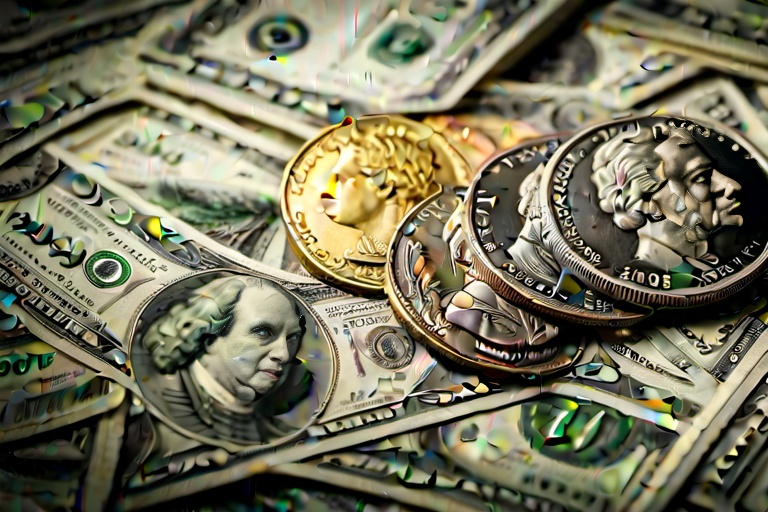Coin collecting is more than just a hobby; it's a gateway to a wealth of history, art, and potentially even profit. Across the globe, enthusiasts indulge in the thrill of chasing rare coins and the satisfaction of preserving pieces of monetary history. The appeal of numismatics—the study and collection of coins, paper money, and related objects—lies not just in the joy of the chase, but also in the nuanced understanding of coin values, which can translate into a significant financial return for those who are knowledgeable and strategic.
Coin collecting is more than just a hobby; it's a gateway to a wealth of history, art, and potentially even profit. Across the globe, enthusiasts indulge in the thrill of chasing rare coins and the satisfaction of preserving pieces of monetary history. The appeal of numismatics—the study and collection of coins, paper money, and related objects—lies not just in the joy of the chase, but also in the nuanced understanding of coin values, which can translate into a significant financial return for those who are knowledgeable and strategic.
Understanding the Market: Rarity and Demand
A core principle in coin collecting is the value associated with rarity. Rarity does not always equate to age; a coin minted in large numbers may lose most of its population to time through wear, loss, or mishaps, leaving only a few specimens in pristine condition. On the other hand, some coins are born rare, with limited mintages or unique characteristics like misstrikes or design variations. The desirability of such rarities fosters a market where demand can significantly drive up the coin's value.
Collecting as a Profitable Venture
While many collectors pursue numismatics purely for pleasure, there is no denying the financial aspect that tantalizes some enthusiasts. The stories of collectors turning a modest investment into a windfall are part of numismatic lore. One noted case involved Harold Bareford, who parlayed a purchase of U.S. gold coins into millions at auction decades later. This kind of success hinges on a thorough knowledge of rare and valuable coins, a commitment to research, and a keen eye for opportunity whether at coin shows, auctions, or even local sales.
Investment Strategies: Gold and Silver
In the realm of coin investment, precious metals like gold and silver coins are often regarded as bulwarks against economic turbulence. Gold commands a premium, offering a hefty intrinsic value and serving as a status symbol in many cultures. However, its higher price point and physical heft might pose practical concerns for storage and transport. Silver, more accessible due to its lower cost, brings diversification to an investor's portfolio and holds industrial importance, though it may experience more dramatic price swings.
Numismatics: A Journey of Discovery
Numismatics is an enriching journey, offering insights into the cultural, economic, and political landscapes of different periods. The tactile connection to the past, the meticulous study of designs, and the strategic acquisition of key pieces make for a fulfilling experience. Collectors often enjoy the community aspect of the hobby, exchanging knowledge, sharing collections, and fostering connections within a circle of like-minded individuals.
Evaluating Coins: Condition and Authenticity
When evaluating a coin's value, its state of preservation is crucial. Coins in better condition are often more valuable, particularly those graded in Mint State (MS) or with Proof (PR or PF), indicating a coin struck in a special way for collectors. The grading scale, which ranges from Poor (P-1) to Perfect Mint State (MS-70), helps collectors determine a coin's condition. Another critical factor is authenticity; counterfeit coins pose a risk, and the expertise of professional numismatists is invaluable in confirming a coin's legitimacy.
Leveraging Expertise
For both hobbyists and investors, engaging with coin experts and reputable dealers is a pivotal step in navigating the numismatic landscape. A specialist can offer insights on current trends, provide accurate appraisals, and advise on the best strategies for building a collection that satisfies either the collector's personal interests or their investment objectives.
The Role of Coin Dealers
A coin dealer plays multiple roles—from advisor and appraiser to buyer and seller. A reputable dealer will offer transparent evaluations based on market trends and the individual characteristics of a coin. They ensure that transactions are conducted with integrity and that the collector is informed about the true worth of their pieces.
Maximizing Your Coin Investment
Collectors looking to see a return on their investment should approach numismatics methodically. They should prioritize rare and exceptional coins, which stand a better chance of appreciating over time. Patience, diligence in research, and an understanding of market dynamics will help any investor discern the coins that are most likely to experience an increase in value.
In summary, coin collecting merges the delight of a personal hobby with the strategic aspects of investment. The world of numismatics is rich with opportunities for those who engage with it—culturally, intellectually, and financially. At All Valley Coin & Jewelry, we bring over a decade's worth of experience to aid both the seasoned collector and the curious beginner. Our aim is to ensure that every individual we work with is equipped with the knowledge to make informed decisions, whether they're looking to expand a personal collection or to capitalize on the potential financial benefits of coin collecting. With our expert team and commitment to our clients, All Valley Coin & Jewelry stands as a beacon of trust and excellence in the numismatic community.
Information for this article was gathered from the following source.




